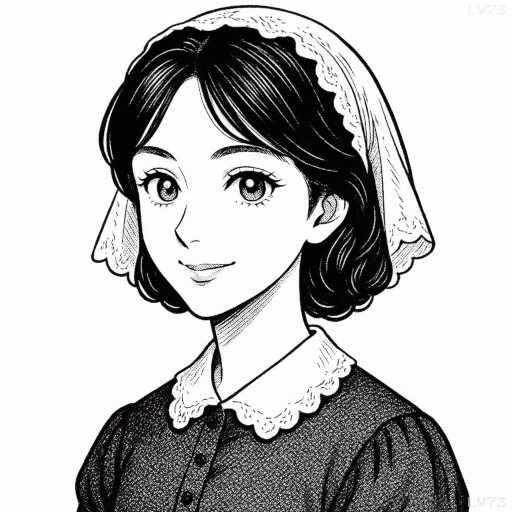“The most important practical lesson that can be given to nurses is to teach them what to observe – how to observe – what symptoms indicate improvement – what the reverse – which are of importance – which are of none – which are the evidence of neglect – and of what kind of neglect.”

- May 12, 1820 – August 13, 1910
- Born in the Grand Duchy of Tuscany (Italy)
- Nurse, statistician
table of contents
Quote
“The most important practical lesson that can be given to nurses is to teach them what to observe – how to observe – what symptoms indicate improvement – what the reverse – which are of importance – which are of none – which are the evidence of neglect – and of what kind of neglect.”
Explanation
In this quote, Florence Nightingale highlights the critical importance of observation skills in nursing practice. She argues that nurses must not only know what to observe in a patient’s condition, but also how to observe it accurately and systematically. Recognizing the subtle signs of improvement or deterioration in a patient’s health is essential for providing effective care and ensuring timely interventions. Nightingale believed that trained nurses could detect early symptoms of complications, thus preventing serious issues before they became life-threatening. The emphasis on knowing what symptoms are of real importance and which ones are irrelevant reflects her commitment to efficiency and precision in medical practice.
Nightingale also stresses the importance of recognizing evidence of neglect in patient care, not just from external conditions like unsanitary environments, but in terms of the nurse’s attentiveness and level of care. In her time, nursing was largely unprofessional, with many nurses lacking formal training. Nightingale sought to professionalize the field, focusing on the importance of a nurse’s observational skills and clinical judgment as key aspects of their role. By training nurses to identify signs of neglect, she was working to ensure that patients received consistent and high-quality care, as well as holding nurses accountable for their work.
This principle remains highly relevant in modern nursing, where patient monitoring and assessment skills are central to daily practice. Nurses today are taught to observe not only physical symptoms but also changes in behavior, emotional state, and environmental factors that might impact health. Nightingale’s approach to teaching nurses how to systematically observe and interpret symptoms continues to influence how nursing education and healthcare practice are structured today, emphasizing the critical role of nurses in patient outcomes.
Would you like to share your impressions or related stories about this quote in the comments section?
